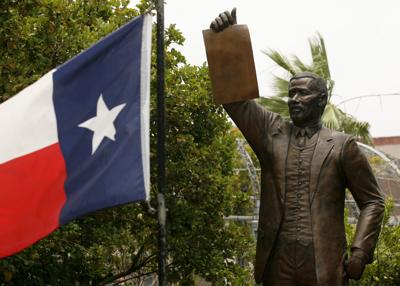On June 19th, 1865, General Gordon Granger read out General Orders No. 3, informing everyone in Galveston, Texas that slavery had been abolished. The enslaved population of Texas was the last to learn of President Abraham Lincoln's Emancipation Proclamation, which freed all those in bondage in the states in rebellion on January 1, 1863.

Photo: Juneteenth Statue in Galveston, Galveston County Daily News
June 19th, or "Juneteenth," has become a day of celebration in the African American community. It is also known as Freedom Day. In 1865, the newly freed men and women celebrated spontaneously but in 1866, they organized an event, a holiday, and it has continued to this day.

Photo: Great Bend Tribune
But few outside the African American population are aware of what Juneteenth is. When Apple added Juneteenth to its US holidays calendar, along with Muslim and Hindu holidays, some people were confused or upset that Apple was including these "non-US holidays." Their anger is a perfect example of why Juneteenth needs to be celebrated every year.
Screenshot of a question in the Apple forum.
This Juneteenth is special because Congress is holding hearings today to consider reparations for African Americans. While both the House and the Senate have formally apologized for the atrocities of slavery, the country has not been able to move on. Current tensions in this country stem from racial tensions that arose from the institution of slavery.


Photo: C-SPAN screen capture
Video: Committed, an a cappella group from Oakwood University sings "Lift Every Voice," also known as the Black National Anthem.



